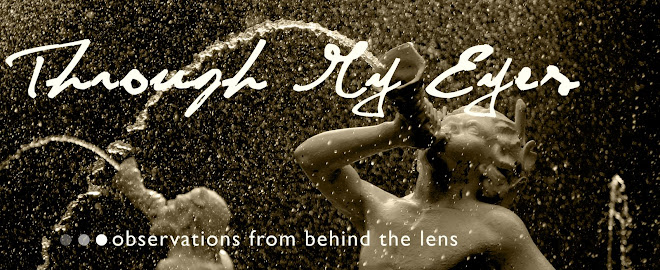It started with The Reader. I was traveling out of town to a conference and wanted a “book on CD” to help me pass the trip while driving alone. While perusing the offerings on iTunes, I ran across Bernhard Schlink’s The Reader. I knew that Kate Winslet had recently won an Oscar for best actress in the 2008 film adaptation, but otherwise knew nothing else. Something compelled me to purchase and download the book.
Wrapped around a captivating and uncomfortably erotic story of a fifteen-year-old boy and his mysterious older lover, The Reader examines how the generations of Germans after the Third Reich have attempted to come to terms with Nazi crimes. At one point, the narrator and protagonist Michael, later in life after the end of
 the affair, meets a former Nazi officer while hitchhiking to a concentration camp site. Of the Jewish murders, he says, “An executioner is not under orders. He's doing his work, he doesn't hate the people he executes, he's not taking revenge on them, he's not killing them because they're in his way or threatening or attacking them. They're a matter of such indifference to him that he can kill them as easily as not.”
the affair, meets a former Nazi officer while hitchhiking to a concentration camp site. Of the Jewish murders, he says, “An executioner is not under orders. He's doing his work, he doesn't hate the people he executes, he's not taking revenge on them, he's not killing them because they're in his way or threatening or attacking them. They're a matter of such indifference to him that he can kill them as easily as not.”Last week, while traveling to Minnesota, I picked up a copy of Defiance. Written in 1993 by Nechama Tec, it is the story of a group of armed Jewish partisans, led by Tuvia Bielski, who escape the Polish ghettos to hide in the forest, resisting the German occupiers while attempting to save other Jews from certain death at the hands of the Nazis. Not tempted by revenge, Bielski instead does whatever it takes to save as many Jews as possible. While other partisan groups, particularly the Russians, shun women, children, and the elderly, Tuvia’s group takes in any Jew seeking refuge. When the group is liberated by the Soviet Red Army in 1945, 1,200 Jewish partisans follow Beilski out of the forest. Although I shunned it in the theatre, I can’t wait to see the film now.
Strangely, while sitting in the Minneapolis/St. Paul airport reading Defiance, I heard on CNN that a lone gunman, James von Brunn, had entered the Holocaust Museum in Washington D.C. and killed a guard with a .22 caliber rifle. An apparent white supremicist, Mr. von Brunn was 88. In his car, illegally parked on the curb, was a note that included the comment, “The Holocaust is a lie.”
So what were the odds that Schindler’s List would air on HBO in the last week? Oddly, I had never seen this award-winning movie. But even at over three hours in length, I had to watch it. Probably like everyone, I was struck by the sheer
 disregard of the Jews as human beings by the Germans. And I was also struck by the similarities of Schindler and Beikski in their attitude of saving one more Jew. The ring made by the Schindlerjuden factory workers for Oskar bore the Talmudic quote, “Whoever saves one life saves the world entire.”
disregard of the Jews as human beings by the Germans. And I was also struck by the similarities of Schindler and Beikski in their attitude of saving one more Jew. The ring made by the Schindlerjuden factory workers for Oskar bore the Talmudic quote, “Whoever saves one life saves the world entire.”It’s so easy to look back at the Jewish Holocaust and the horrific cruelties of the Final Solution and see these events as unique and isolated incidents from a distant past. But as a good friend and retired military officer reminded me recently, atrocities continue around the world. Since 2003, over 400,000 have died in the genocide in Sudan. Saddam Hussein executed countless thousands of Kurds in Iraq. Muslims are killing each other over differences seemingly less significant that Baptist versus Methodist theology.
The potential for humans to commit horrific acts continues. If for no other reason beyond Kate Winslet's wardrobe for much of the first third of the movie, The Reader is captivating because it examines the feelings of Germans after WWII. How could so many German citizens not know what was happening in Poland. Is there something in all of us that makes us susceptable to climbing on such a horrific bandwagon draped in patriotism. Having had an opportunity to visit the Holocaust Museum in Washington, I think a visit there should be mandatory for every U.S. citizen. The larger than life efforts of Bielski and Schindler saved over 2,000 Polish Jews. But over 3,500,000 perished, brutally murdered by the Nazis. Can knowledge, understanding, and courage find defiance in each of us?




No comments:
Post a Comment